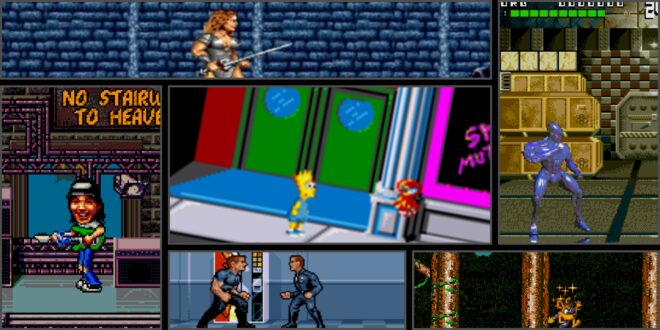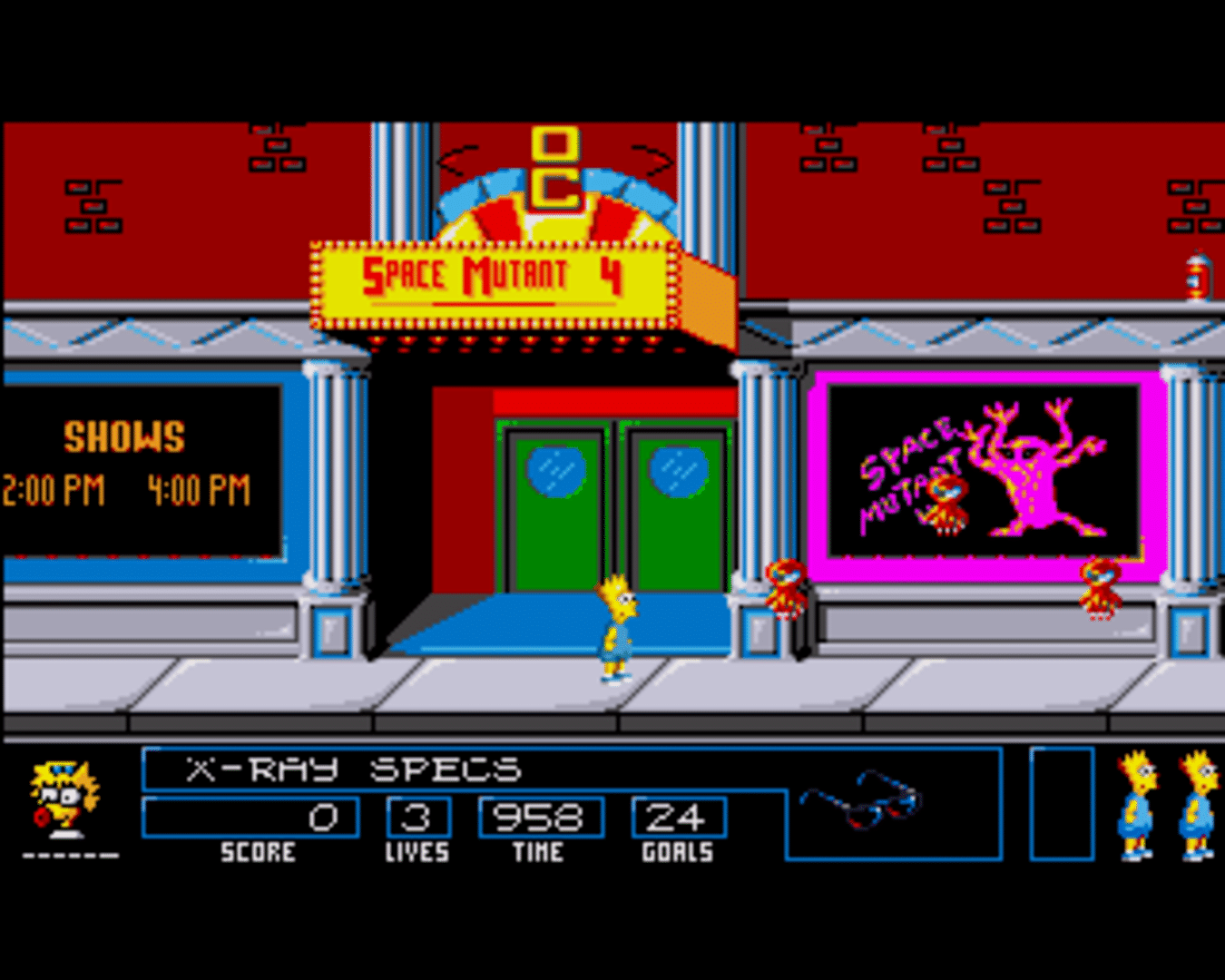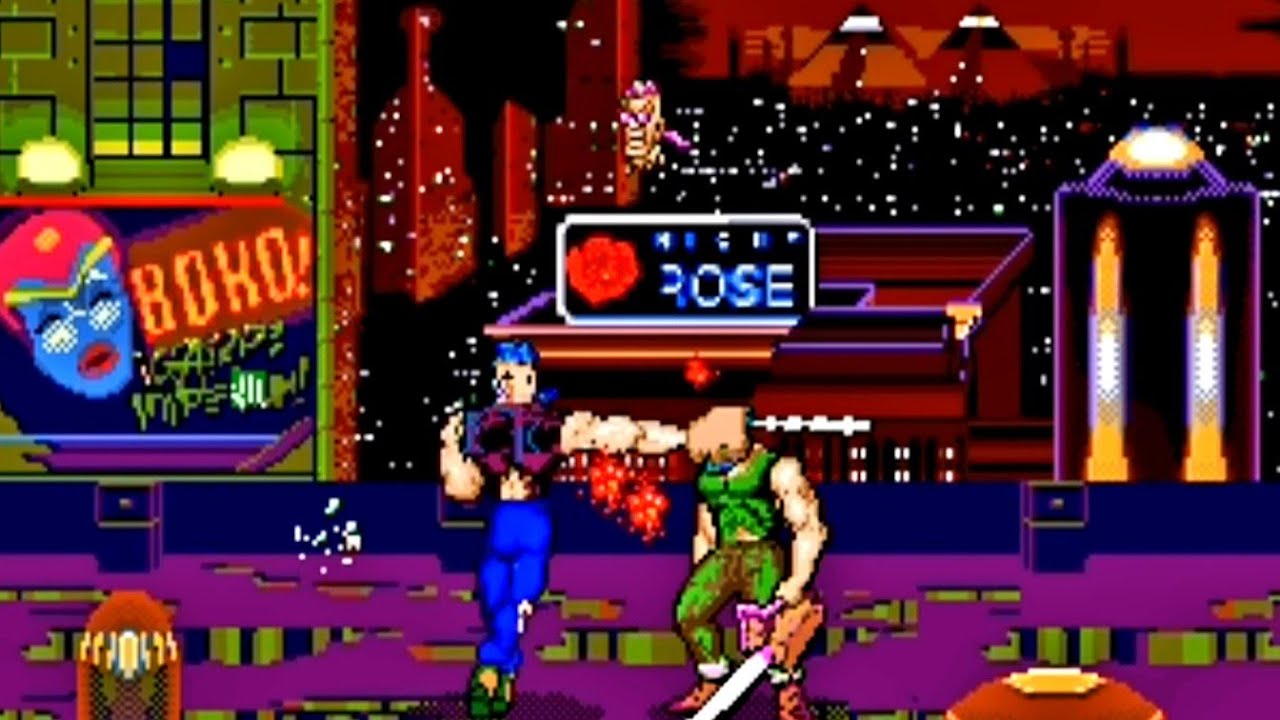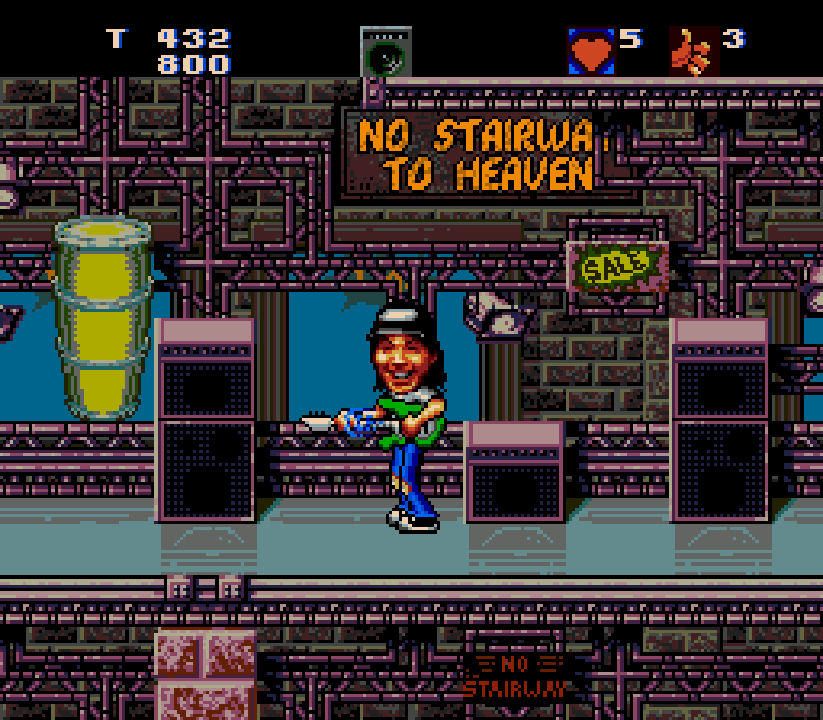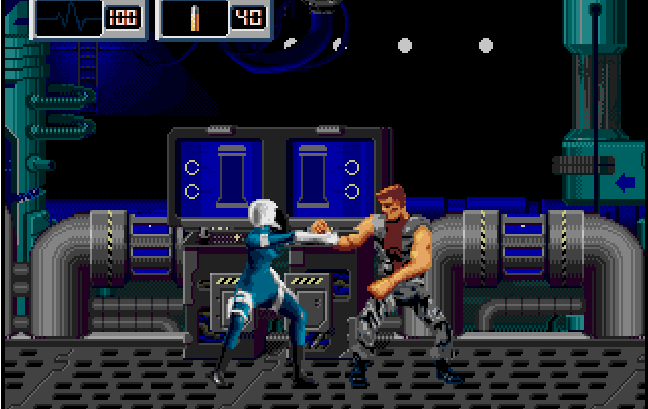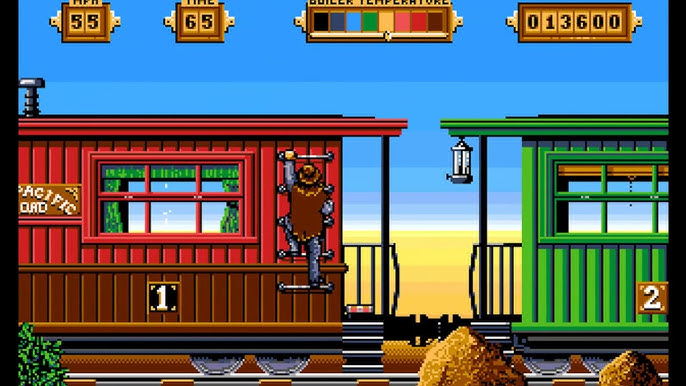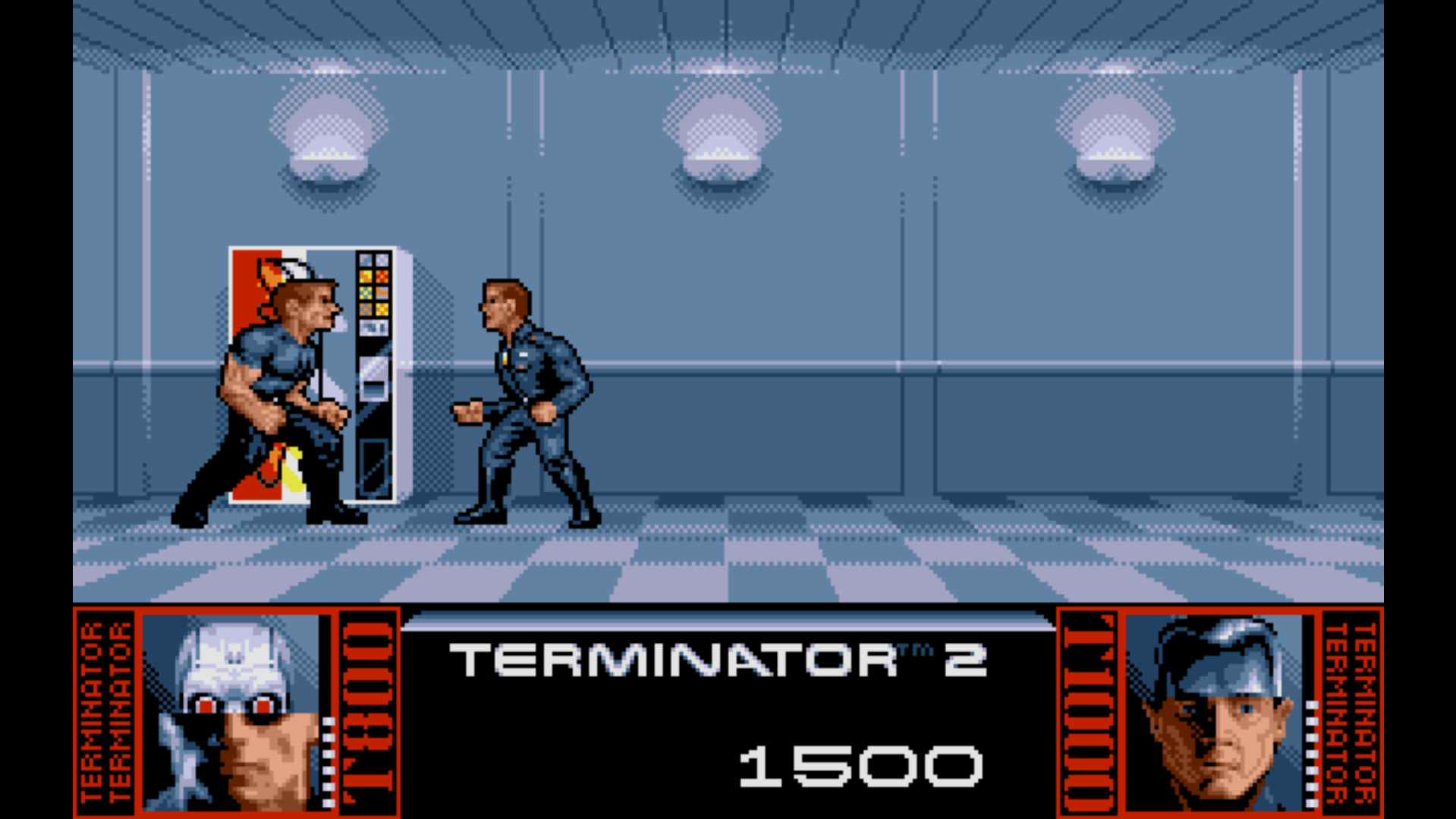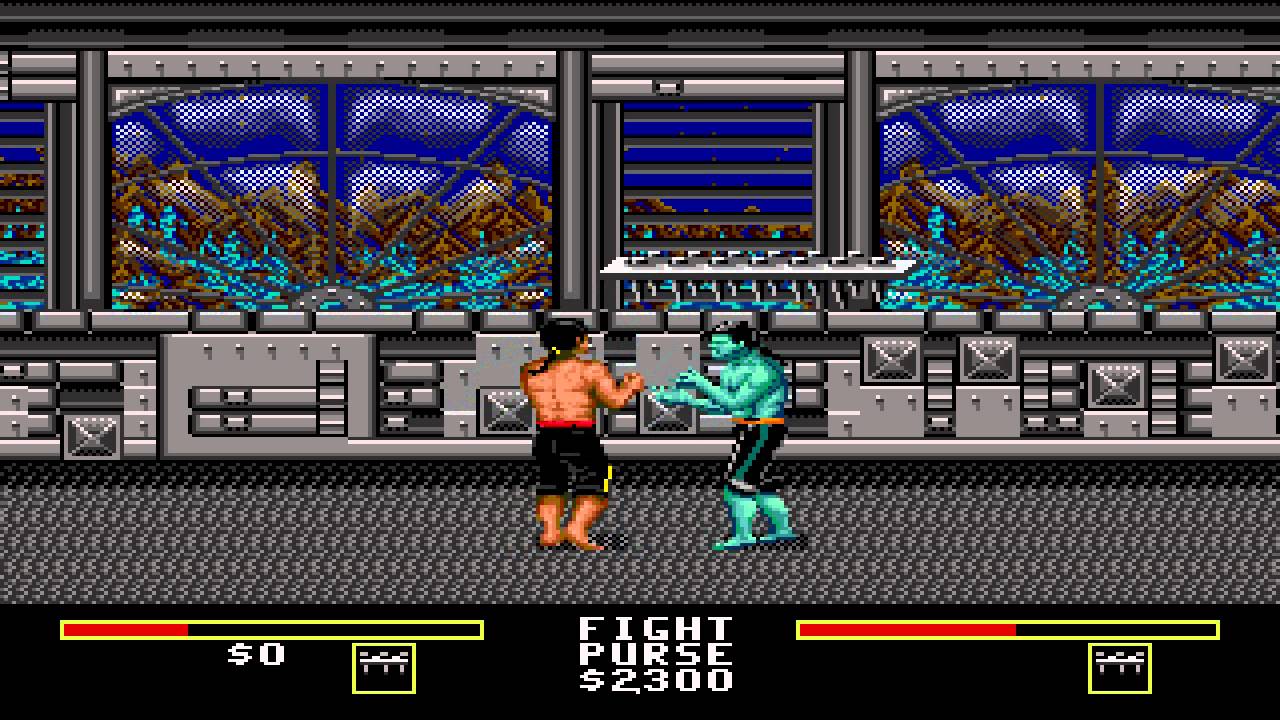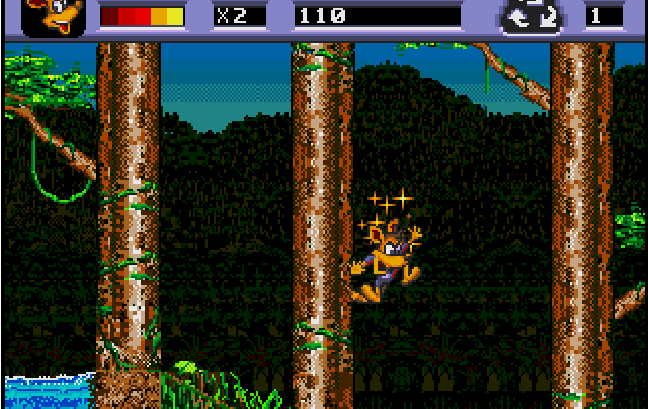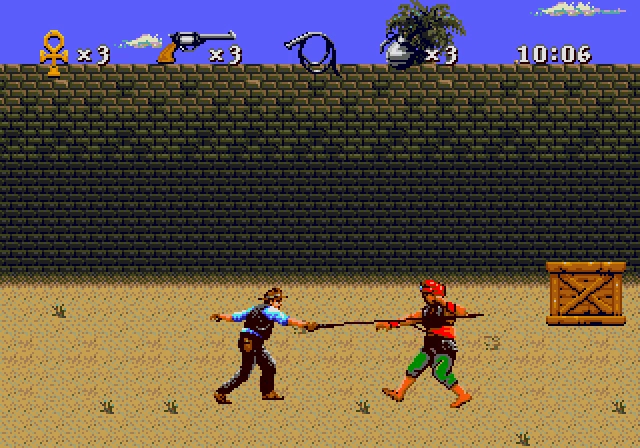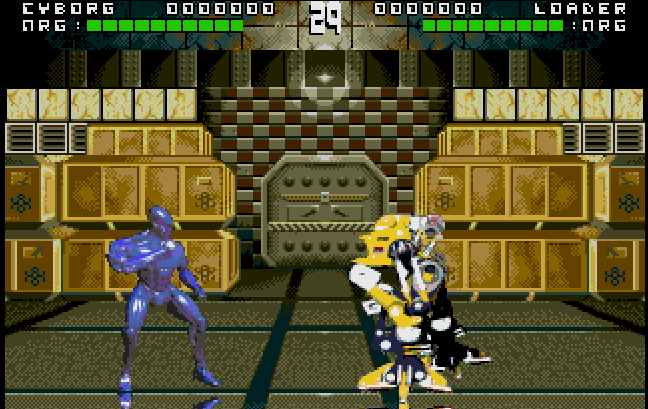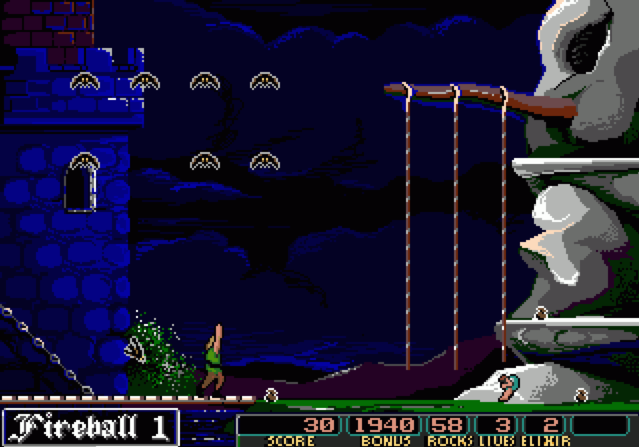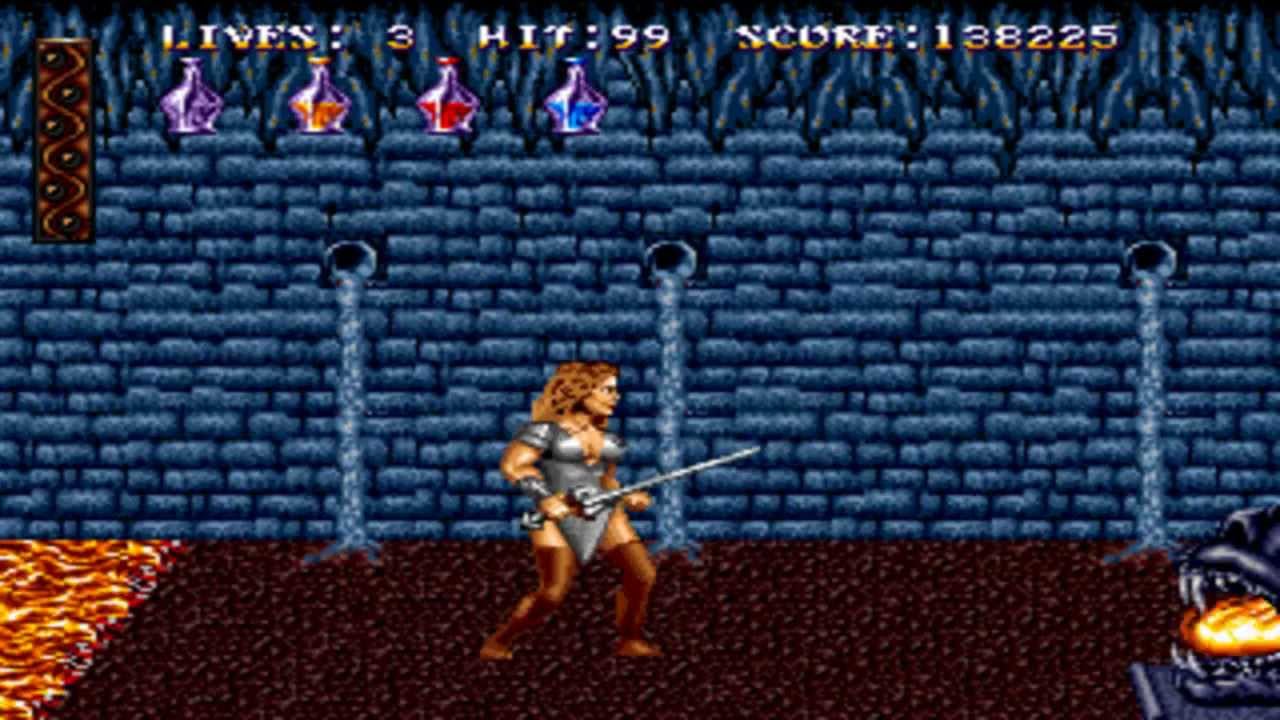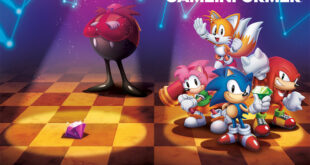The Sega Genesis, also known as the Mega Drive outside North America, was a 16-bit home video game console that left an indelible mark on the gaming industry during the late 1980s and early 1990s. Boasting a library of nearly 1000 games, the Genesis played host to numerous iconic titles such as Sonic the Hedgehog, Streets of Rage, and Phantasy Star. However, amidst the console’s many triumphs lie some of the most notoriously bad video games ever released. From shoddy movie tie-ins to broken platformers and shallow fighting games, let’s take a deep dive into 15 of the worst games ever to grace the Sega Genesis.
12. The Simpsons: Bart vs. The Space Mutants
This early attempt at bringing the popular animated sitcom to consoles was a complete misfire. The game’s frustrating platforming, unintuitive objectives, and poor level design sucked any potential fun out of the experience. While the Genesis version boasted better visuals than its NES counterpart, it still couldn’t overcome the game’s fundamentally flawed gameplay. Bart’s abilities are extremely limited, with the game often requiring the player to tediously backtrack to find specific items to progress. The novelty of playing as Bart quickly wears thin as the game’s many issues become apparent, making for a thoroughly unenjoyable experience.
11. Time Killers
Time Killers was a lackluster port of an already mediocre arcade fighting game. Released in 1996, long after the Genesis had peaked, this game felt archaic compared to its contemporaries. The ugly visuals and choppy animation made the characters look like crude stop-motion puppets. The sluggish and unresponsive gameplay further undermined any potential enjoyment. With a roster of generic fighters and a complete lack of depth or strategy, Time Killers was a shallow and forgettable experience that added nothing to the fighting game genre.
10. Wayne’s World
This movie tie-in based on the popular Saturday Night Live sketch-turned-feature film was a complete disaster. The atrocious level design and barely-functional gameplay made it a chore to play. Wayne’s World subjected players to a series of poorly-designed platforming levels that were both frustrating and tedious. The game’s unresponsive controls and cheap enemy placement made progression feel like a matter of luck rather than skill. Even the most die-hard fans of the source material would have a hard time finding anything to enjoy in this abysmal adaptation.
9. X-Perts
Despite boasting an interesting premise of controlling a team of vigilantes, X-Perts quickly squandered its potential with repetitive gameplay and bland environments. The game’s stiff animation and sluggish controls made combat feel clunky and unsatisfying. Each level dragged on far too long, with little variation in enemies or objectives. The game’s attempt at a comic book-style narrative fell flat, with static cutscenes and forgettable characters failing to engage the player. X-Perts was a mediocre brawler that failed to bring anything new or exciting to the genre.
8. Back to the Future Part III
This movie tie-in based on the third installment in the Back to the Future trilogy was a perfect example of artificial difficulty gone wrong. The game’s extremely short length, combined with its punishingly hard gameplay, made for an intensely frustrating experience. Back to the Future Part III consisted of just four minigames, each with poorly-explained objectives and unforgiving time limits. The imprecise controls and unclear visual cues made it nearly impossible to succeed, with players often failing due to factors beyond their control. With no continues or password system, players were forced to start from the beginning each time they ran out of lives, making the game feel like a cruel joke rather than a fun challenge.
7. Terminator 2: Judgment Day
This movie tie-in based on James Cameron’s blockbuster sequel was a massive disappointment. The game’s unimpressive visuals, clumsy controls, and poorly-designed levels failed to capture any of the excitement or intensity of the film. Playing as the T-800, players were subjected to a series of dull and repetitive stages that involved mindlessly shooting enemies and navigating frustrating platforming sections. The game’s ineffective weapons and bullet sponge enemies made combat a tedious slog, while the lack of checkpoints meant that death often sent players back to the beginning of a level. Terminator 2: Judgment Day was a prime example of a movie tie-in that failed to deliver on the promise of its source material.
6. Slaughter Sport
Slaughter Sport was a prime example of the abysmal state of fighting games before the genre-defining Street Fighter II set the standard for quality. The game’s shallow gameplay, unbalanced characters, and baffling control scheme made for a frustrating and nearly unplayable experience. The hideous character designs and choppy animation only added to the game’s overall lack of polish. Slaughter Sport’s attempt at adding depth with a power-up system fell flat, with the game’s cheap AI and lack of strategic options making each match feel like a button-mashing exercise in futility. In a genre known for its intense competition and satisfying gameplay, Slaughter Sport stood out as a complete failure.
5. Awesome Possum… Kicks Dr. Machino’s Butt
This blatant Sonic the Hedgehog rip-off managed to get everything wrong in its attempt to cash in on the popularity of Sega’s mascot. The game’s hideous graphics, choppy animation, and poorly-designed levels were just the tip of the iceberg. Awesome Possum suffered from numerous game-breaking bugs and glitches, with players often falling through floors or getting stuck in walls. The game’s unresponsive controls and slippery physics made navigating its levels a frustrating chore, while the obnoxious sound effects and grating music only added to the misery. Awesome Possum’s attempts at environmental messaging and edgy attitude fell completely flat, leaving players with a thoroughly unenjoyable experience.
4. Instruments of Chaos Starring Young Indiana Jones
This ill-fated attempt at bringing the legendary adventurer to the Genesis was a complete disaster. The game’s unresponsive controls, poor hit detection, and shoddy level design made it a frustrating and nearly unplayable mess. Indy’s limited moveset and weak combat abilities made fighting enemies a chore, while the game’s numerous glitches and bugs often caused players to get stuck or fall through the environment. The game’s dull, repetitive objectives and uninspired puzzles failed to capture any of the excitement or adventure of the Indiana Jones films. Instruments of Chaos was a clear example of a licensed game that failed to understand or respect its source material.
3. Rise of the Robots
Rise of the Robots was a textbook example of style over substance. Despite its heavily-hyped graphics and impressive CGI cutscenes, the game itself was a shallow and frustrating mess. The game’s single playable character and paltry selection of just six opponents made for an incredibly limited experience. The sluggish gameplay, unresponsive controls, and lack of combo system meant that matches devolved into tedious slap fights with no room for strategy or skill. Rise of the Robots’ attempt at telling a deeper story through its cutscenes was laughable, with cringeworthy dialogue and nonsensical plot twists that failed to engage the player. In the end, Rise of the Robots was a prime example of a game that prioritized flashy visuals over solid gameplay, and suffered greatly for it.
2. Dark Castle
Dark Castle was a lesson in frustration and poor game design. The game’s sadistic difficulty, clunky controls, and unfair enemy placement made it an absolute chore to play. The maddening sound effects and repetitive music only added to the game’s overall unpleasantness. Dark Castle’s trial-and-error gameplay meant that players were often caught off guard by cheap deaths and unexpected hazards, with no way to defend themselves. The game’s confusing level layout and lack of checkpoints forced players to restart from the beginning each time they died, making progress a grueling and tedious affair. Dark Castle was a game that seemed to actively hate its players, offering no enjoyment or satisfaction in return for their suffering.
1. Sword of Sodan
Sword of Sodan is widely regarded as one of the worst games ever released on the Genesis, and for good reason. Despite its impressive-looking character sprites, the game itself is an absolute chore to play. The sluggish, unresponsive controls make combat feel like a frustrating exercise in button-mashing, with no sense of impact or satisfaction. The game’s repetitive, uninspired level design and complete lack of variety make each stage feel like a slog, with no sense of progression or accomplishment. The terrible hit detection and cheap enemy placement lead to countless unfair deaths, while the limited continues and lack of password system force players to restart from the beginning each time. Sword of Sodan is a game with no redeeming qualities, a joyless experience that serves as a testament to the worst excesses of the 16-bit era.
The Sega Genesis may have been home to some of the most beloved games of the 16-bit era, but it was also a platform that saw its fair share of stinkers. From rushed movie tie-ins to ill-conceived original properties, the console’s library was littered with games that ranged from mediocre to outright unplayable. The games on this list represent the nadir of the Genesis’ output, titles that failed to deliver on even the most basic levels of quality and enjoyment. While the console’s best games continue to be celebrated and remembered fondly, its worst offerings serve as cautionary tales, reminding us of the pitfalls of rushed development, misguided design choices, and the perils of prioritizing hype over substance. As we look back on the legacy of the Sega Genesis, it’s important to acknowledge not just its triumphs, but also its missteps, and to learn from the mistakes of the past in order to build a better future for gaming.
 Retro-Replay.com Retro gaming reviews, news, emulation, geek stuff and more!
Retro-Replay.com Retro gaming reviews, news, emulation, geek stuff and more!
